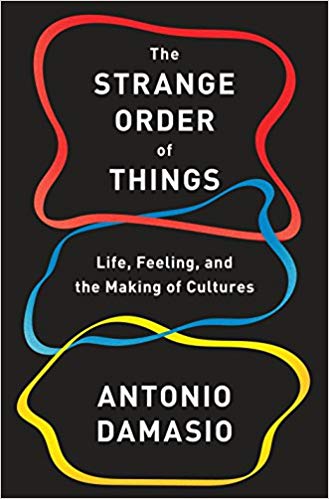Artificial Intelligence cannot create! Yes, it will imitate!
 I am linking this post with previous one dealing with the notion of repetition and imitation in art, since during our painting workshops in Italy and art classes in France, we aim at promoting freedom and self-consciousness when dealing with brush and canvas or any other means of creation.
I am linking this post with previous one dealing with the notion of repetition and imitation in art, since during our painting workshops in Italy and art classes in France, we aim at promoting freedom and self-consciousness when dealing with brush and canvas or any other means of creation.
Good news from Damasio’s latest book: The Strange Order of Things: Life, Feeling and the Making of Culture. It is impossible to duplicate human intelligence! Human intelligence is the product of the interaction and inseparability between the body and the brain. This is the key message of the latest book by world-renowned neuroscientist Antonio Damasio, who offers a powerful, well-argued view of the links between biological evolution and the emergence of emotions, feelings and consciousness. Starting from the first unicellular organisms and ending with the impact of the emotional in the decision-making and the cultural factory, Damasio proposes a humanist approach of the future of our societies.
First of all, Damasio reminds us that every living being has an absolute, innate strength, called “homeostasis”, which ensures the advancement of life. This natural reflex can lead to physical manifestations and is the essence of primary emotions such as joy, fear, anger and surprise. However, the feelings come from the ability to mentally perceive the cause of an emotion and relate it to the state of the body. Therefore, only humans and certain animals with fairly advanced nervous systems, then capable of “a” form of consciousness and subjectivity would be able to experience affective states such as love, hatred and happiness. For Damasio, feelings are at the root of all cultural creation (I put in bold type!) Because it is in search of a solution to pain and suffering, as well as a response to the quest for well-being and fun, that humans have discovered arts, sports and science. They also developed religious beliefs along with their value systems, and this all to guide their decisions.
It took a long time to arrive to this state of being. It took about four billion years for this process to develop from the very first biological manifestations of life to the arrival of a being with a well-rooted brain into a complex body. By emphasizing this specificity of the human being, Damasio questions the theories of thinkers like Yuval Noah Harari (Homo Deus) who prophesy the supremacy of humanoid robots by reducing the mind to the brain and to algorithms. Although artificial intelligence is producing major upheavals in the areas of health, transportation, commerce and even art, it is impossible for it to replace human creativity for a very simple reason: machines are not endowed with life, so they are not vulnerable to the existential questions intimately related to birth and death, freedom and determinism as well as memories and the future.
To conclude, the header image of this post shows a golden head on the ocean floor (called Sun Disk) conceptualised by Damien Hirst (human intelligence), worked out on computer by his staff and partly milled by a milling robot (the machine); it was then put on the ocean floor to complete the concept; “unbelievable” I kept saying while walking through the exhibition. From Treasures from the Wreck of the Unbelievable, a vast exhibition that opened in Venice on April 9, 2017, Hirst’s most ambitious undertaking yet.

One thought on “Concerning A.I., we are still good for a few centuries!”